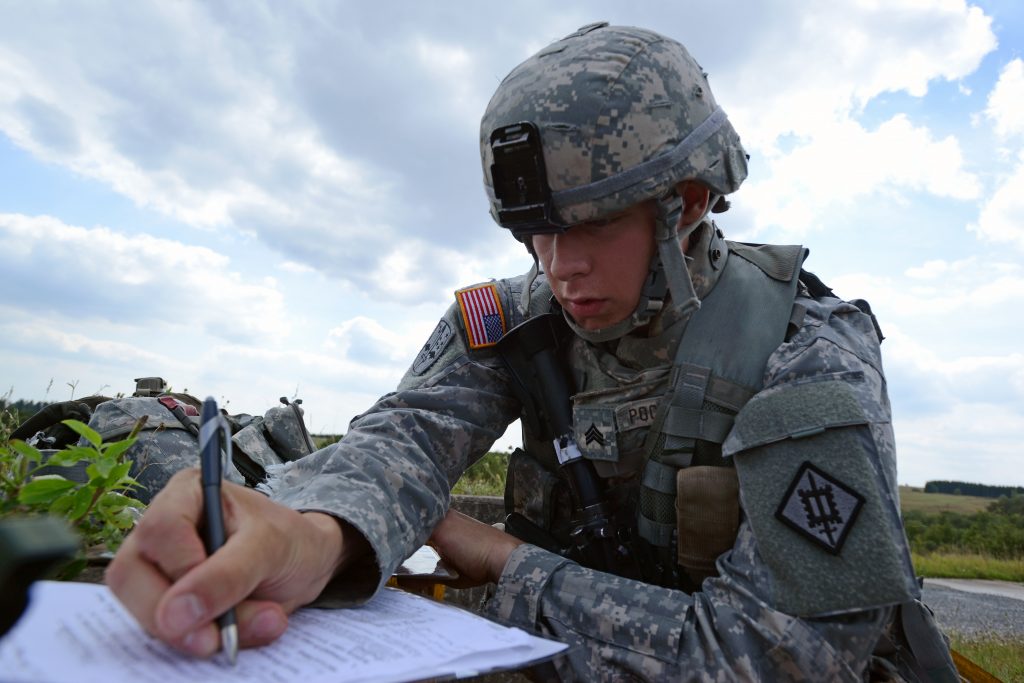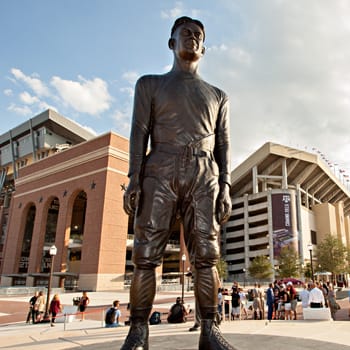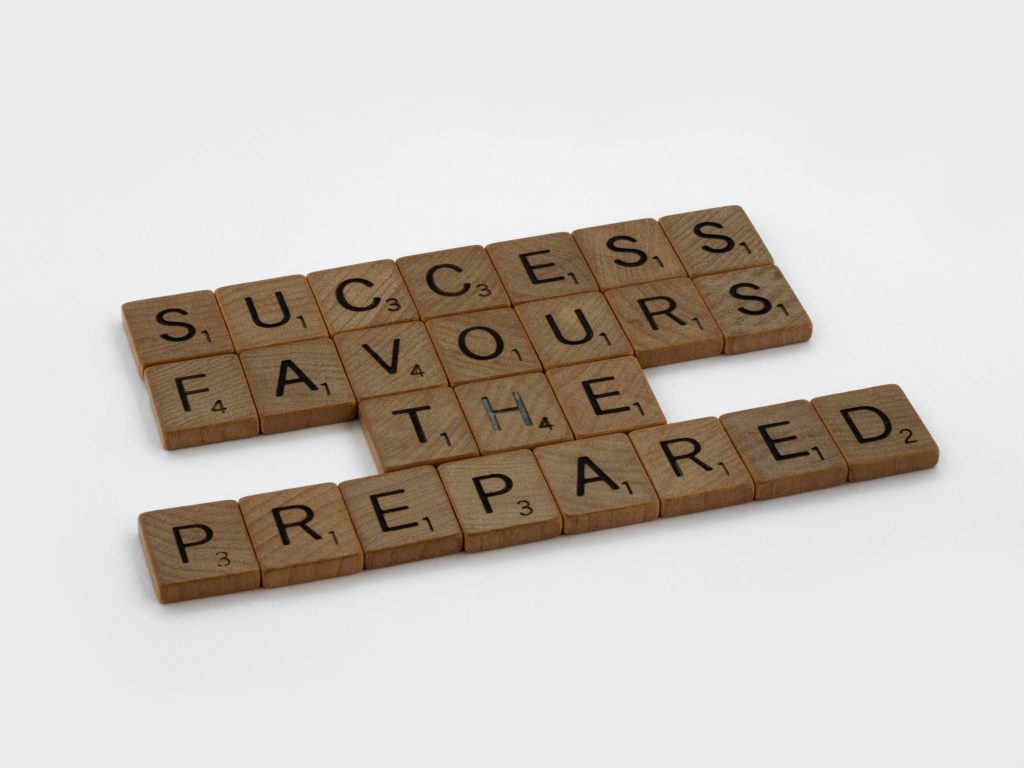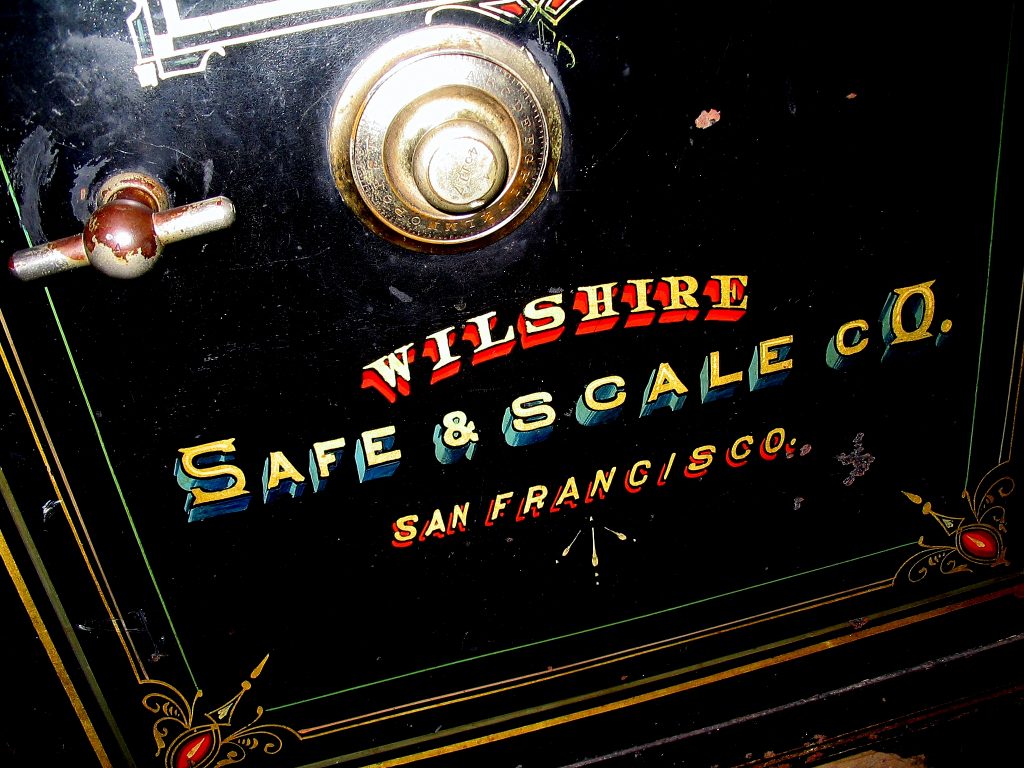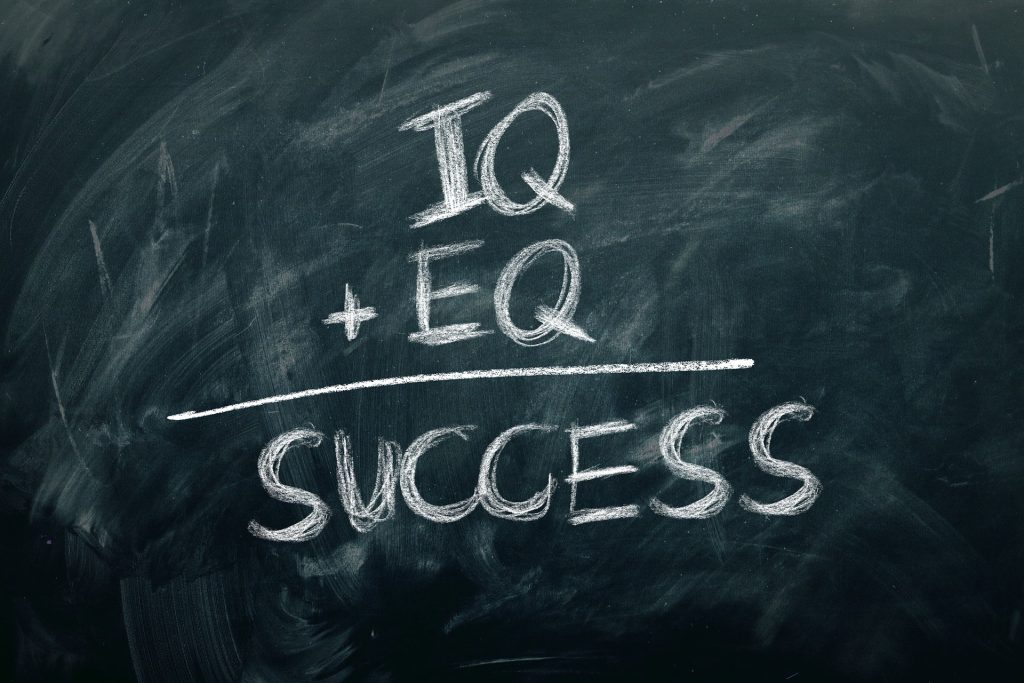In Addition to Expanded Memory, it Can Also Serve as Meeting Preparation
Over the past few weeks, we’ve been discussing the issues of note taking and how this can be an overwhelming and daunting thing.
We started out with the importance of determining the why before the how. Next, we discussed the struggle of deciding whether to do digital or use paper. Last week we talked about the additional memory storage that is available with notes and storing them in a way so they can be found.
Last week’s focus was on taking notes for learning – lectures, classes, webinars, podcasts, books, etc.
This week we’re going to look at meeting notes and how they differ from learning notes. Meeting notes are more about actions than learning notes.
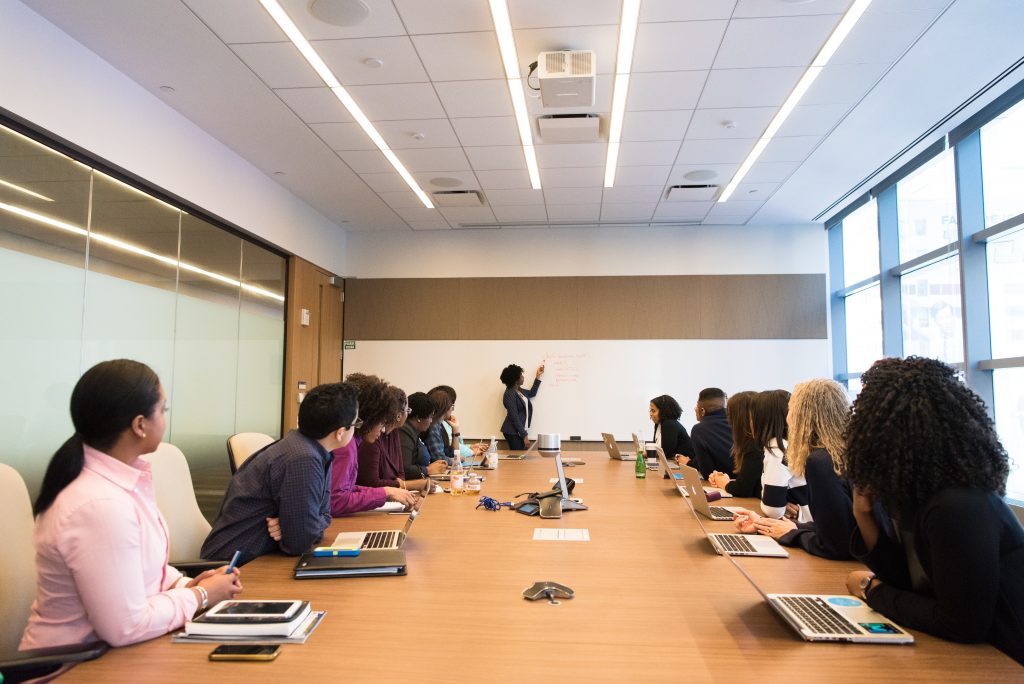
They are about discussions during the meeting, decisions made in the meeting, actions that need to be taken, when these actions need to be completed, etc. Meetings should have an agenda. An agenda is a form of note taking prior to the meeting. If you’re responsible for the meeting, you’re responsible for the agenda.
There are two different motivations for meeting notes
- Preparation of a meeting that you’re responsible for organizing
- Taking notes in a meeting that someone else has organized
An agenda is a form of “preparation” note taking.
Like learning notes, I prefer OneNote for my meeting notes. This is a Microsoft note-taking program for information gathering and multi-user collaboration. It can gather notes, drawings, screen clippings, and audio commentaries.

Notes can be shared with other OneNote users over the Internet or a network. OneNote is available as part of the Microsoft Office suite; it is also available as a free, stand-alone app via the website and the app stores of: Windows 10, MacOS, iOS and Android.
If you’d like to know more about why and how I use it, you can open my toolbox and look at OneNote.
On some occasions I will use a Word document. This may be because some people in the group need it in this format or it is an agenda that someone else has prepared previously.
The most important thing to remember when preparing a meeting agenda is…WHY are we having this meeting?
Here’s an example of a simple meeting agenda in OneNote.
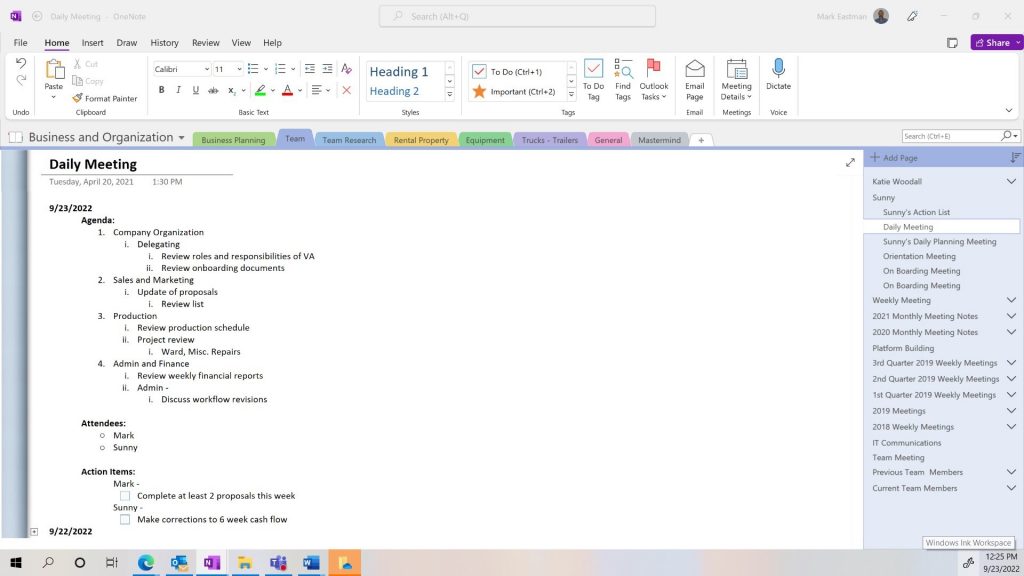
Just like last week, if you look at the upper left corner to see what notebook we’re in, you can see that we’re in the Business & Organization Notebook. The Section is the second one from the left, the Team tab. Looking at the right side of the screen you can see we’re in Sunny’s subpage entitled Daily Meeting.
Below the heading of Daily Meeting in the upper left, you can see the date and time of the meeting. This is created automatically when a new page is started. These can be changed at any time.
You will also see another date on the left side above the agenda. This is because in this format I take notes during the meetings and keep each one in the same OneNote page so that that can be reviewed later.
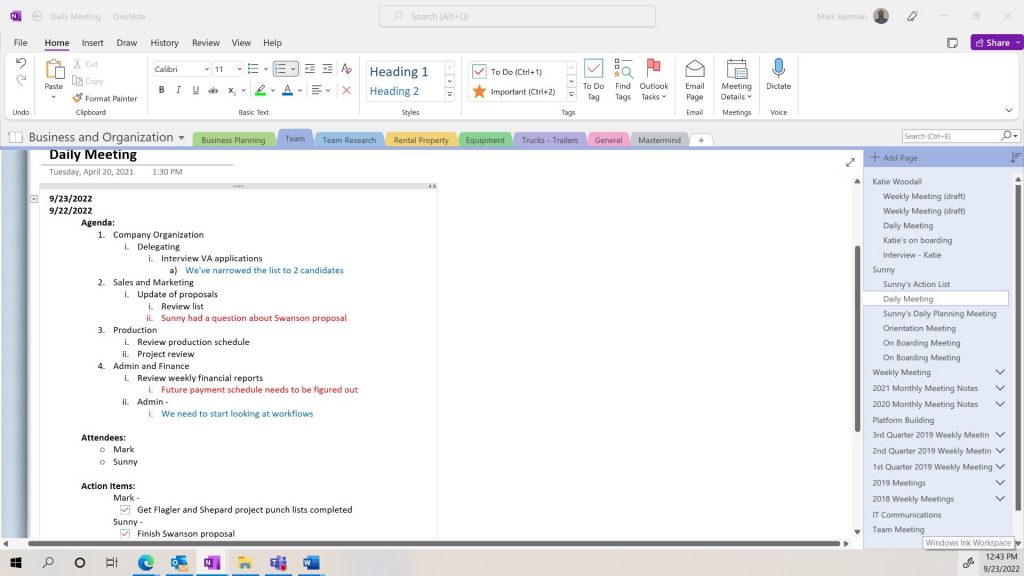
In this view you’ll see the previous day’s agenda with notes. There are two additional colors on this agenda. The blue is notes I make to myself as reminders prior to the meeting. The red are notes made during the meeting.
Here is an excerpt from a Word document meeting agenda/notes. This was prepared by the church secretary and sent out to people on the committee ahead of time.
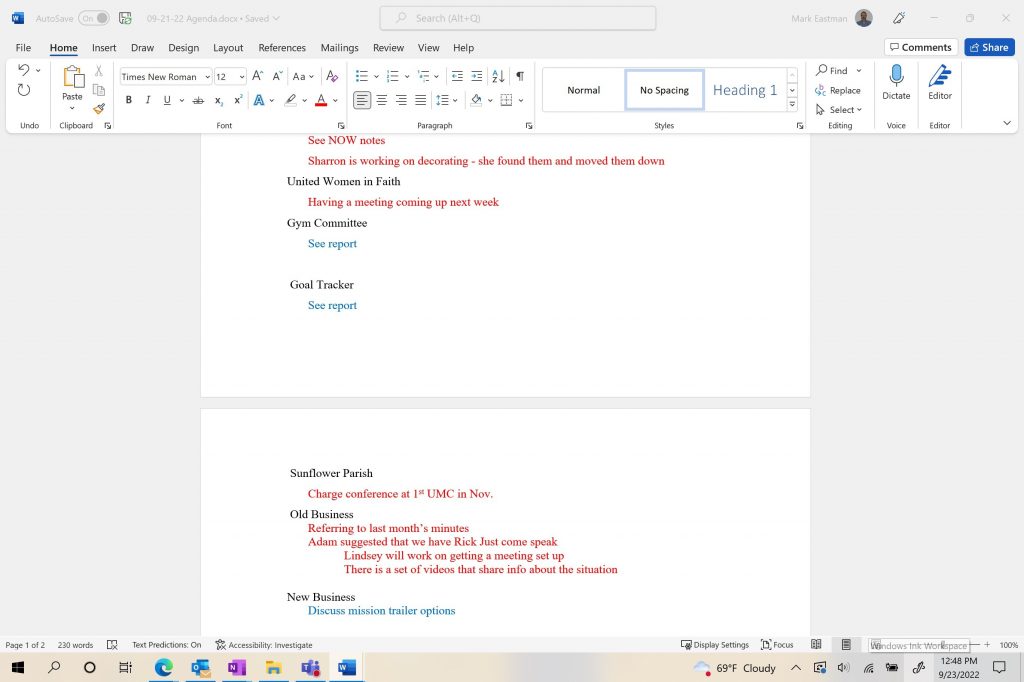
If I am responsible for reports or if there are things I want to remember during the meeting, I will add notes prior to the meeting – blue. During the meeting I take notes on my tablet, these are in red.
This can seem like a lot of work, but for me it’s worth the effort.
There was a time years ago when I was a young chairman of a committee at the church and was asked a question.
I couldn’t answer it because…I forgot what was discussed in the previous meeting.
This was a traumatic experience for a young man just out of high school.
Situations like this are, in part, what has led to me being the note taking nerd that I am. For me it’s about being accountable to those who have given me the responsibility, whatever that responsibility is.
Next week we’ll look at note taking as a way to sort our thoughts.




